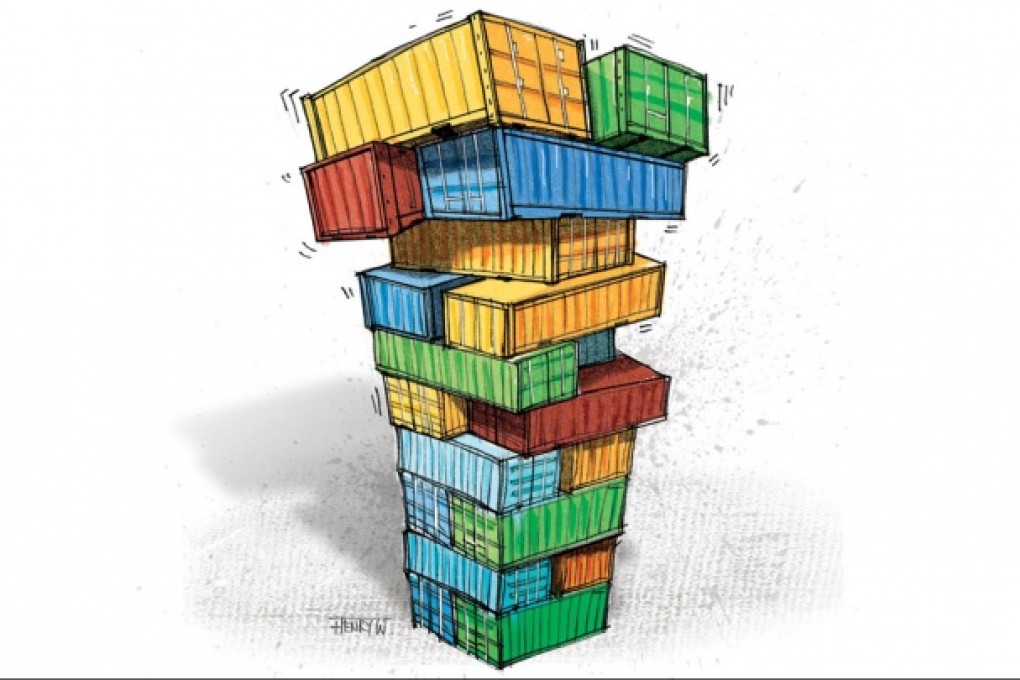Leave political grandstanding out of negotiations over dockers' dispute
John Meredith says political grandstanding must not be allowed to prevent a resolution to the dockers' strike, which is causing harm to Hong Kong's business as it drags on, to everyone's loss

After decades of investment and growth that once established it as the largest port facility in the world, the port of Hong Kong now risks losing business and its global leadership to competitors from Singapore, Taiwan, Japan, Korea, Malaysia and mainland China. These lost cargoes would adversely affect not only the dockers but thousands of others who are involved in related businesses in Hong Kong's pivotally important logistics chain.
For those of us anxious to agree on a positive outcome to the current dispute between striking dockworkers and their employers, a simple basic reality needs to be recognised. Hong Kong's port operators have achieved world leadership by being efficient and cost-effective. The waterfront is not an easy or simple business: it involves tough negotiations with customers on fees and charges as well as with our employees and supporting companies. Negotiations may be tough but they are always in good faith: we share a keen interest in reaching an agreement that can be valued and respected by all parties.
Stirred by a union and its leader that is more concerned with scoring political points than an agreement that secures the livelihoods of these contracted workers, the need for negotiation in good faith has been abandoned. This is perhaps the most disappointing aspect of the current stand-off.
These attacks, together with the claims that Hongkong International Terminals (HIT) has failed to respond to the needs of the industry and the welfare of those working in it, do both an injustice to the staff and are additionally an insult to those of us who are intensely proud of the revolutionary business model that started in Hong Kong, has benefited our great city, and in the process enabled Hong Kong to become a world leader in its field.
Not only are the activities of the Confederation of Trade Unions deceptive, they are dangerous. A crucial point to remember with transhipment cargoes is that they do not have to come through Hong Kong. They can choose to transit at many other ports, and if we lose the trust of the shipping lines to deliver the right product at the right price, then our transhipment traffic will be lost. In fact, a number of transhipment cargoes have already bypassed us, and if our costs increase or our efficiency becomes uncertain, the business won't be coming back.
This does not seem to matter to Lee Cheuk-yan of the CTU, nor do the other facts that he chooses to ignore; his overall strategy being to directly attack Hutchison Whampoa chairman Li Ka-shing with Cultural Revolution-style banners and slogans and by protesting at Mr Li's residence and Hutchison Whampoa retail stores.
The dockers involved in the recent industrial action at the port work for independent contracting companies. They do not work directly for HIT. Lee Cheuk-yan of CTU knows this, yet he is dramatically focusing on Hutchison Whampoa, HIT and Mr Li personally.